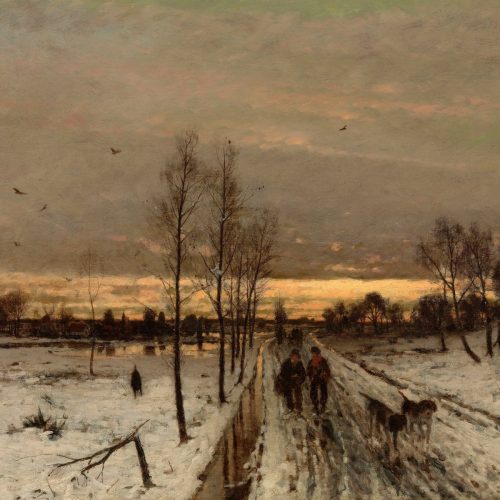Max García Conover says his upcoming album, everything in winter, is “somewhat inspired by a suitcase full of letters my grandfather wrote” in the 1940s, to the woman who would become Conover’s grandmother.
Conover’s writing is grounded in close attention to the way people tell their stories. “May this be the kind of night / when we’re seeing from our eyes” Conover sings on “caw,” from the new album.
“Seeing from our eyes” could be his motto as a storyteller. He shows what the world looks like through the kaleidoscope of his characters’ points of view.
This song rides on the sound of the acoustic guitar. It is round and smooth, like a highly polished walking stick, or a frozen waterfall in sunlight. The sound of fingers on steel strings, little artifacts of friction, remind us the guitar is a physical thing, and that sound is long-distance touch. The tender roughness of Conover’s vocals provides textural contrast to the riverstone-smooth guitar.
The stability of the instrumentation draws the listener’s attention to the lyrics. Conover begins, “Evenings I can see / seldom as they seem.” The slip in near-rhyme from “see” to “seem” reminds us that all we see is the way things seem, distorted by mood, memory, and expectation. This opening situates the song within one person’s peculiar perspective: his fanciful associations and fleeting impressions, half-truths in the dreams of the half-asleep crows.
The next verse parallels the seeing/seeming structure of the first: “evenings I can see / they open up their wings” – talking about the crows, we realize, but not until after we’ve tried to picture what it looks like when an evening opens up its wings. Conover layers seeing and seeming on top of each other: the concrete image of the crows, and the lift in the mind at twilight, the feeling of time opening into night.
In the chorus, focus turns to “you,” with one of the few lines in the song that repeats: “I might sing something you’ve heard before.” Paula Prieto’s voice joins Conover’s immediately after the first mention of the word “you,” as if she’s giving voice to the song’s other character. The warmth and sweetness of Prieto’s hum become features of “you.”
Conover creates character and story through the details his characters notice.
We don’t have resumé-style information about anybody in this song, but we know they consider how a flock of sleepy crows feel about them. We know the singer reminds himself of the other’s request: “keep it light, you said, keep it light.”
The sound of summer crickets bookends the track. Or maybe it’s static; I can’t tell. Either way, it’s the sound of time: the hum provides a before and an after, a spacious buzzing emptiness that the song emerges from and sinks back into. I think I hear crickets in the verse about “walking through the creek,” too, but maybe it just seems like they’re there.
You can directly support the completion of everything in winter by making a donation on Conover’s website and downloading the five tracks currently available.







